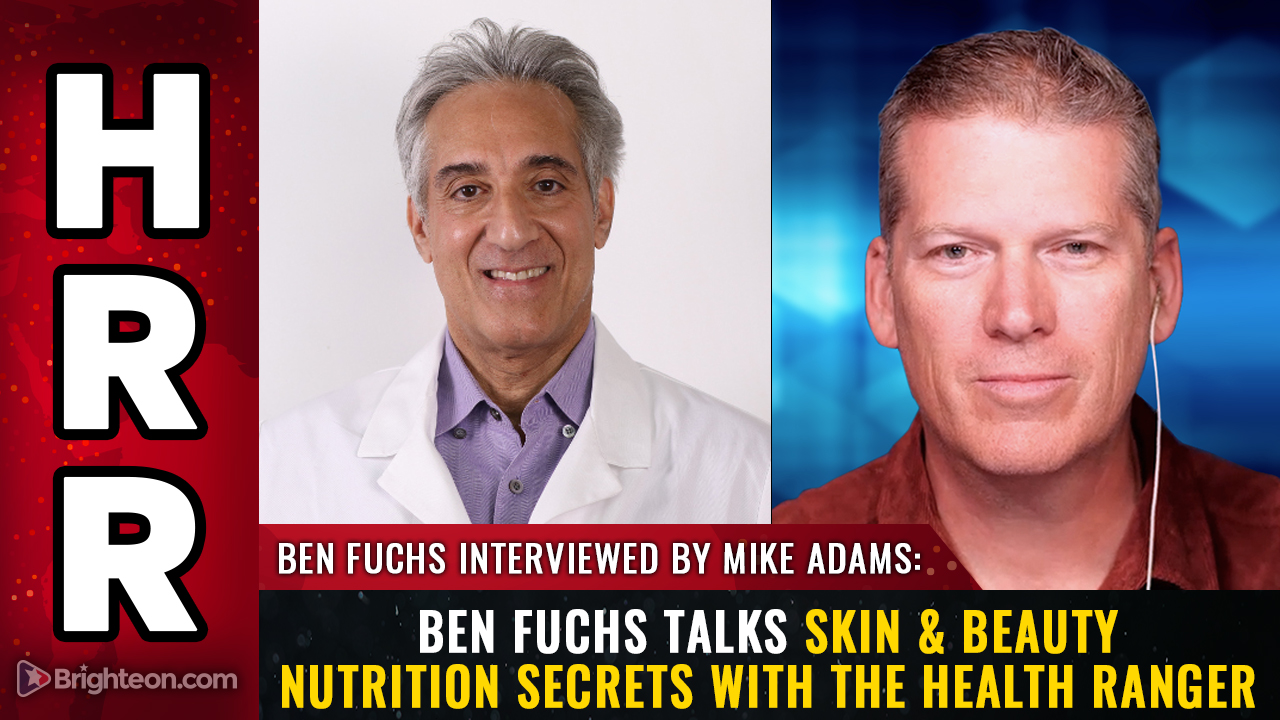Controversial hope: The Gerson therapy and the battle against advanced cancer
05/21/2025 / By Belle Carter

- In the mid-20th century, Dr. Max Gerson emerged as a controversial yet hopeful figure in the medical world, challenging the prevailing pessimism around cancer treatment with his book “A Cancer Therapy: Results of Fifty Cases and the Cure of Advanced Cancer by Diet Therapy” (1958).
- Dr. Gerson proposed a radical approach to curing advanced cancer through a meticulously designed diet and detoxification regimen, known as the Gerson therapy. This holistic approach aimed to detoxify the body, restore liver function and replenish essential nutrients.
- Dr. Gerson viewed cancer as a systemic disease, believing that metabolic disruptions led to toxin buildup and nutrient deficiencies. His therapy aimed to address these underlying issues, promoting the body’s innate ability to heal itself through a comprehensive approach that considered the body’s interconnectedness.
- Despite facing significant opposition from the medical establishment due to the lack of rigorous scientific evidence and unconventional methods, Dr. Gerson’s ideas have left a lasting impact on alternative cancer treatments. His detailed case studies of 50 patients, many considered terminal, continue to inspire and provoke thought about the nature of cancer and its treatment.
In the mid-20th century, a time when cancer was often seen as an incurable death sentence, Dr. Max Gerson emerged as a controversial yet hopeful figure in the medical world. His book, “A Cancer Therapy: Results of Fifty Cases and the Cure of Advanced Cancer by Diet Therapy,” published in 1958, challenged the prevailing pessimism surrounding cancer treatment.
Dr. Gerson, a German-born physician, proposed a radical approach that defied conventional wisdom: he claimed to cure advanced cancer through a meticulously designed diet and detoxification regimen. His methods, now known as the Gerson therapy, have sparked both fervent support and harsh criticism, leaving a lasting impact on the landscape of alternative cancer treatments.
Dr. Gerson’s journey began in the 1920s when he first observed the potential of dietary changes in treating migraines. This led him to explore the broader implications of nutrition on various diseases, eventually focusing on cancer. At a time when the medical community was largely resigned to the notion that cancer was an insurmountable foe, Dr. Gerson’s belief in the body’s innate ability to heal itself was revolutionary. He argued that modern agricultural practices and dietary habits had introduced toxins and deficiencies, weakening the body’s natural defenses and creating an environment conducive to cancer growth.
The Gerson therapy is a comprehensive, holistic approach that seeks to detoxify the body, restore liver function and replenish essential nutrients. Its core components are as follows:
- Detoxification: Central to the therapy is the belief that removing toxins is crucial for healing. Dr. Gerson advocated for frequent coffee enemas, a practice that has drawn both curiosity and skepticism. These enemas were intended to stimulate the liver and enhance the elimination of toxins. Additionally, castor oil treatments were used to aid in detoxification.
- Diet: The dietary aspect of the therapy is perhaps its most radical and defining feature. The Gerson Diet primarily consists of fresh, organic fruits and vegetables, with a strong emphasis on raw foods. Patients are encouraged to consume large quantities of juices, particularly carrot and apple juice, as well as green leaf juice. The diet is salt-free and low in fat and protein, with animal proteins introduced gradually after several weeks.
- Nutritional supplements: Dr. Gerson emphasized the importance of potassium and iodine. He used a potassium solution to replenish the body’s potassium levels and administered iodine in the form of Lugol’s solution and thyroid extract to support thyroid function and boost the body’s oxidation processes.
- Liver therapy: The liver plays a pivotal role in the Gerson therapy. Dr. Gerson believed that a healthy liver was essential for detoxification and overall health. He used liver injections and fresh calf’s liver juice to provide the body with essential nutrients and enzymes.
Dr. Gerson’s approach was grounded in the idea that cancer is a systemic disease, not merely a localized one. He contended that cancer patients’ metabolic processes are disrupted, leading to a buildup of toxins and a deficiency in essential nutrients. By addressing these underlying issues, he posited that the body could regain its ability to heal itself. He also stressed the “concept of totality,” the notion that the body is a complex, interconnected system. This meant that treating cancer required a comprehensive approach that addressed all aspects of the body’s functioning, not just the tumor itself.
Despite the compelling nature of his ideas, Dr. Gerson faced significant opposition from the medical establishment. The lack of rigorous scientific evidence supporting his claims and the unconventional nature of his methods made it difficult for him to gain acceptance. However, he remained unwavering in his belief that his therapy could offer hope to patients who had exhausted all other options.
The book includes detailed case studies of 50 patients, many of whom were considered terminal. These stories are both inspiring and thought-provoking, challenging readers to reconsider their assumptions about cancer and its treatment. While the Gerson therapy may not be a panacea, it offers a compelling perspective on cancer treatment. It serves as a reminder that the human body is a complex, dynamic system and that healing often requires a multifaceted approach.
Learn more about diet therapy to cure advanced cancer by watching the video below.
This video is from the BrightLearn channel on Brighteon.com.
Sources include:
Submit a correction >>
Tagged Under:
cancer, cancer cures, detoxification, diet, Dr. Max Gerson, food is medicine, Gerson therapy, liver health, nutrition
This article may contain statements that reflect the opinion of the author
RECENT NEWS & ARTICLES
Herbs.News is a fact-based public education website published by Herbs News Features, LLC.
All content copyright © 2018 by Herbs News Features, LLC.
Contact Us with Tips or Corrections
All trademarks, registered trademarks and servicemarks mentioned on this site are the property of their respective owners.




















